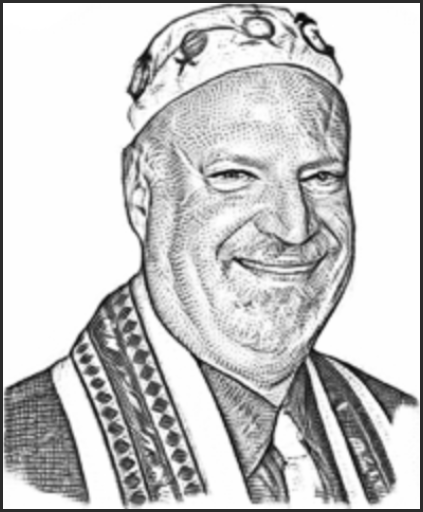By Russell R. Barksdale, Jr.
As a healthcare provider, I find myself increasingly troubled—not just by the economic challenges we face—but by the environment in which we are expected to solve them. When did we, as fellow Americans, lose the ability to engage in open, respectful conversations—especially about matters as vital as our health? When did scientific inquiry and public health policy become casualties of political identity?
We all come to complex issues with our own experiences, beliefs, and values. That diversity of thought should be a strength. But too often, decisions that deeply impact our communities are made behind closed doors, shaped more by political calculation than by transparent, evidence-based debate. Have we created an environment where misinformation thrives simply because we can no longer tolerate nuance, or disagreement, without polarization?
As someone devoted to public health, I believe strongly that ideology and misinformation should never override logic, data, or compassion. We see this tension most acutely in the politicization of vaccines. If we are not careful, vaccine acceptance may mirror the path of climate science—fragmented by politics, stifled by mistrust, and stalled by inaction.
Historically, vaccines have been among the most impactful public health interventions in history—eradicating smallpox, pushing polio to the brink, and saving millions of lives. The science is overwhelmingly clear: vaccines have worked. Yet over the past decade, and especially during the COVID-19 pandemic, vaccines became a cultural flashpoint—a proxy battle in a much broader ideological war.
That should concern us all.
At the beginning of the pandemic, Waveny LifeCare Network tested thousands of residents, patients, staff, and community members alike, without political fanfare. Results were challenged with the same rigor that we provide quality and compassion. We submitted samples to multiple labs to identify which produced the most reliable results. It wasn’t about politics; it was about accuracy, safety, and responsibility. Cross contamination, infrequent equipment calibration, equipment sensitivity, and nonproficient technicians could each individually lead to inaccurate results. That level of rigor can and should be applied to all public health decisions.
It is reasonable, even essential, for independent researchers to critically assess each vaccine’s safety and effectiveness. No scientific claim should be immune from scrutiny; however, healthy skepticism does not equate to outright denialism. Scientific integrity relies on peer review, transparent methodologies, and ongoing monitoring—not blanket rejection or blind acceptance.
What’s deeply alarming now is the measurable impact of our fractured dialogue: rising vaccine hesitancy, falling childhood immunization rates, and the resurgence of diseases once under control. These aren’t theoretical risks. They’re tangible, urgent threats to our most vulnerable populations—infants, the elderly, and the immunocompromised.
This issue is larger than just vaccines. It’s about trust in institutions and the independence of scientific research and development. Once that trust is eroded, it’s difficult to rebuild. Diseases will affect every family and the truth doesn’t belong to one ideology. Evidence-based health decisions should not become ideological flashpoints. Just as we can find points of consensus on even limited aspects of climate change, we should also find common ground in protecting our communities from preventable diseases. This doesn’t require uniformity of opinion, but it does demand a shared commitment to public health.
When science becomes a cultural battleground, we all lose. Sadly, the consequences are measured in lives lost, diseases returned, and opportunities lost. The same political inertia that has paralyzed climate policy should not consume public health.
Where can we go from here?
We can agree to a collective commitment to civil, evidence-based discourse. Healthcare professionals, scientists, educators, and policymakers can lead, not from ideology, but from integrity to develop consensus. We can rebuild public trust through transparency, inclusion, and accountability.
We can invest in science literacy at every level, especially schools, workplaces, and media to better understand what scientific recommendations are and how they’re made. Fear fills the vacuum where knowledge should reside, and political manipulation thrives where clarity is absent.
Diseases are ambivalent to our ideology. Our public health response should be singularly focused. Why are the challenges we face in pandemics, misinformation, and global health crises partisan? We can and must do better. Our response can be universal: rooted in independent and complete data, guided by compassion, and built on a foundation of mutual respect.
The climate debate continues to be divisive. The challenges we face should not be partisan. Diseases do not distinguish between political affiliations or ideological leanings. Our response must be equally universal, rooted in science and guided by compassion. Let us not repeat the mistakes of the climate debate. Vaccines must not become another casualty of ideological warfare. The stakes are too high, the consequences too immediate. We can and must protect not just public health, but the very principle that science should serve the common good—above politics, beyond partisanship, and for all of humanity.
Russell R. Barksdale, Jr., PHD, MPA/MHA, FACHE is President and CEO Waveny LifeCare Network in New Canaan.



